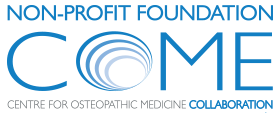Osteopathic manipulative treatment and pain in preterms: study protocol for a randomised controlled trial.
Background: Recent evidence proved the necessity to improve health care and pain management in newborns. Osteopathic manipulative treatment (OMT) has been largely used to treat painful syndromes as well as term and preterm newborns. Recent studies have demonstrated positive results of osteopathy in reducing length of stay and costs. However, no trials were carried out on pain in newborns. The aim of the present clinical trial is to explore the effectiveness of osteopathic treatment in reducing pain in a sample of preterms.
Methods/design: A three-armed single blinded placebo-control randomised controlled trial protocol has been designed to primarily evaluate the extent to which OMT is effective in reducing pain in preterms. One hundred and twenty newborns will be enrolled from one tertiary neonatal intensive care unit in central Italy and randomised in three groups: study, sham and control. The study group will be further prospectively randomised in two subgroups: experienced osteopaths and students. All preterms will receive standard medical care. Osteopathic treatment will be applied to the study group only whilst ‘soft touch’ will be administer to the sham group only. Newborns will undergo manual sessions once a week for the entire period of hospitalisation. Blinding will be assured for neonatal staff and outcome assessor. Primary outcome will be the mean difference in baseline score changes of PIPP questionnaire between discharge and entry among the three groups. Secondary outcomes will be: mean difference in length of stay and costs between groups. Statistical analyses will use per-protocol analysis method. Missing data will be handled using last observation carried forward imputation technique.
Discussion: The present single blinded randomised controlled trial has been designed to explore potential advantages of OMT in the management of newborns’ pain. Currently, based on a patientcentred need-based approach, this research will be looking at the benefit of osteopathic care rather than the efficacy of a specific technique or a pre-determined protocol.
Trial registration: The protocol has been registered on ClinicalTrials.gov (NCT02146677) on 20 May 2014







